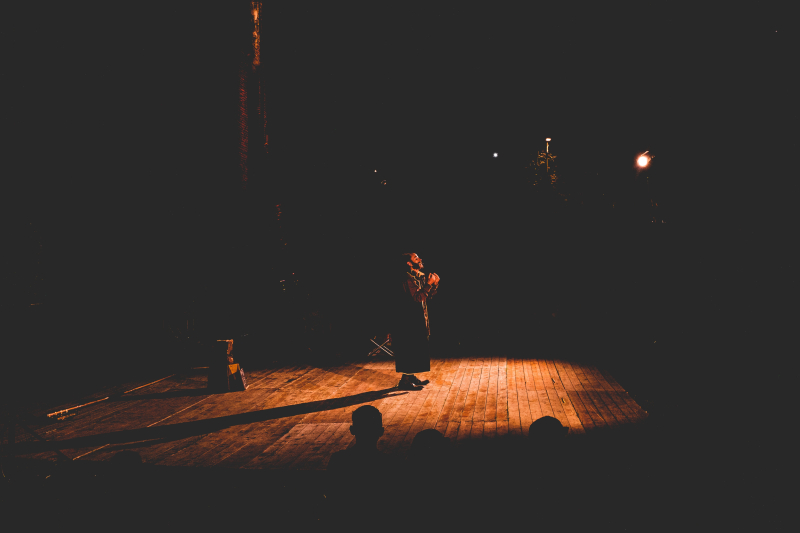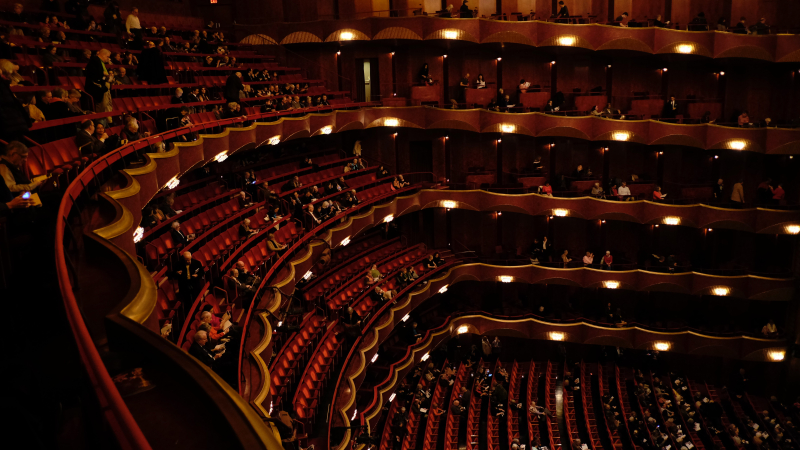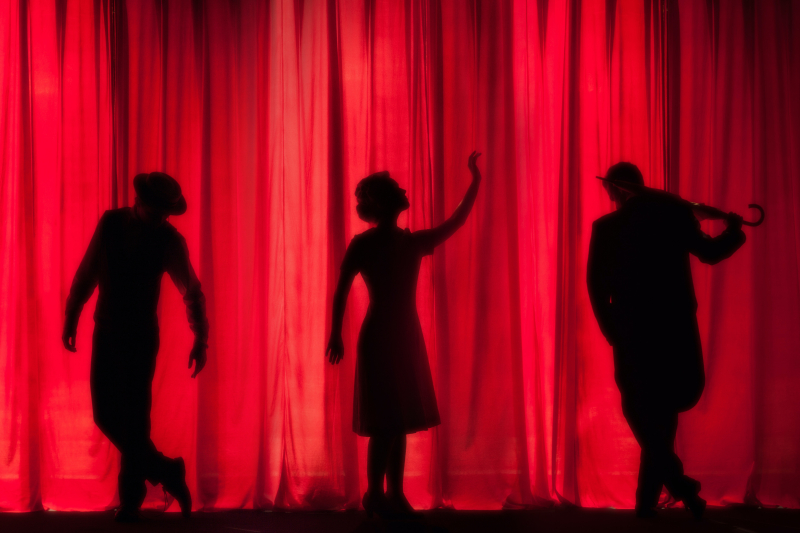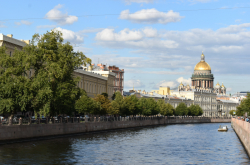Woe from Wit (1823) by Alexander Griboyedov
Genre: comedy
Plot: having spent time abroad, idealist Alexander Chatsky, a representative of the new generation, returns to finally marry his childhood sweetheart Sofia, only to get the cold shoulder from her and her family, the Famusovs – and encounter their money- and rank-obsessed world.
Facts to know: the comedy is a fusion of classism, romanticism, and realism: sharply drawn, multifaceted characters and a timeless conflict mixed with a biting critique and numerous now-catchphrases. Due to censorship, the play was published in full and first performed only after the death of the author.
Catchphrases: Счастливые часов не наблюдают (Who notes, in happiness, how time is flying?); А судьи кто? (And who are the judges?); Служить бы рад, прислуживаться тошно (The service? Good! Servility? Disgusting!).
Read/listen (in Russian and English), see (online/on-stage).

Credit: antonio molinari (@amolinari) via Unsplash
The Government Inspector (1836) by Nikolai Gogol
Genre: comedy
Plot: the inhabitants of a corrupt town mistake a low-ranking civil servant for an arriving inspector general.
Facts to know: The Government Inspector is a comedy of errors, allegedly based on an anecdote that Alexander Pushkin had once told Nikolai Gogol. Interestingly enough, the production of the play would not have seen the light if not for Tsar Nicholas I, who insisted on it being staged.
Catchphrases: На зеркало неча пенять, коли рожа крива (Don't blame the mirror if your mug is skewed).
Read/listen (in Russian and English), see (online/on-stage).
The Storm (1859) by Aleksandr Ostrovsky
Genre: drama
Plot: this is a story about a young woman, Katerina, who is unhappily married to Tikhon, a weak-willed man. Worse still, her mother-in-law is a tyrant, doing all it takes to bring torment to Katerina’s life – even more so when she confesses her love to another man.
Facts to know: the play caused a stir among the literary critics of the time. Nikolay Dobrolyubov published an analysis of Ostrovsky’s work under the title Луч света в темном царстве (Ray of Light in the Dark Realm) – which, by the way, eventually became one of the most common essay topics in Russian schools.
Catchphrases: Отчего люди не летают так, как птицы? (Why don't people fly like birds?).
Read/listen (in Russian and English), see (online/on-stage).

Credit: Alev Takil (@alevisionco) via Unsplash
The Cherry Orchard (1903) by Anton Chekhov
Genre: drama
Plot: following a stay in Paris, Lyubov Ranevskaya pays a visit to her family estate. Her beloved land, including a large cherry orchard, is about to go to auction to cover the family’s debts. Overcome by bittersweet nostalgia, the family scrambles to find a way to save their cherished land.
Facts to know: The Cherry Orchard is the swan song of Anton Chekhov, having premiered (the first production was directed by Konstantin Stanislavski!) just a few months before the playwright’s death. The play is widely known both in Russia and abroad, with a great deal of translations, adaptations, and creative interpretations – such as a manga series.
Catchphrases: Вся Россия наш сад (All Russia is our orchard).
Read/listen (in Russian and English), see (online/on-stage).
The Minor (1782) by Denis Fonvizin
Genre: comedy
Plot: set in Tsarist Russia, the story revolves around the landowner-tyrant Mrs. Prostakova, who wants to force the orphan girl Sophia into a marriage. The plot takes a twist as the landowner learns about the inheritance the girl received from her uncle – and the “perfect” match becomes Mitrofan, her boorish and ignorant son.
Facts to know: the play is a vivid example of classicism in Russian literature, with black-and-white dualism, self-describing names (e.g., the name Sophia means “wisdom” in Greek), black humor, and caricature.
Catchphrases: Не хочу учиться, хочу жениться (I don’t want to study, I want to get married).
Read/listen (in Russian), see (online).
If you want to know more about St.Pete’s theater scene, check out this guide to the city’s best off-the-beaten-track theaters and cinemas.




